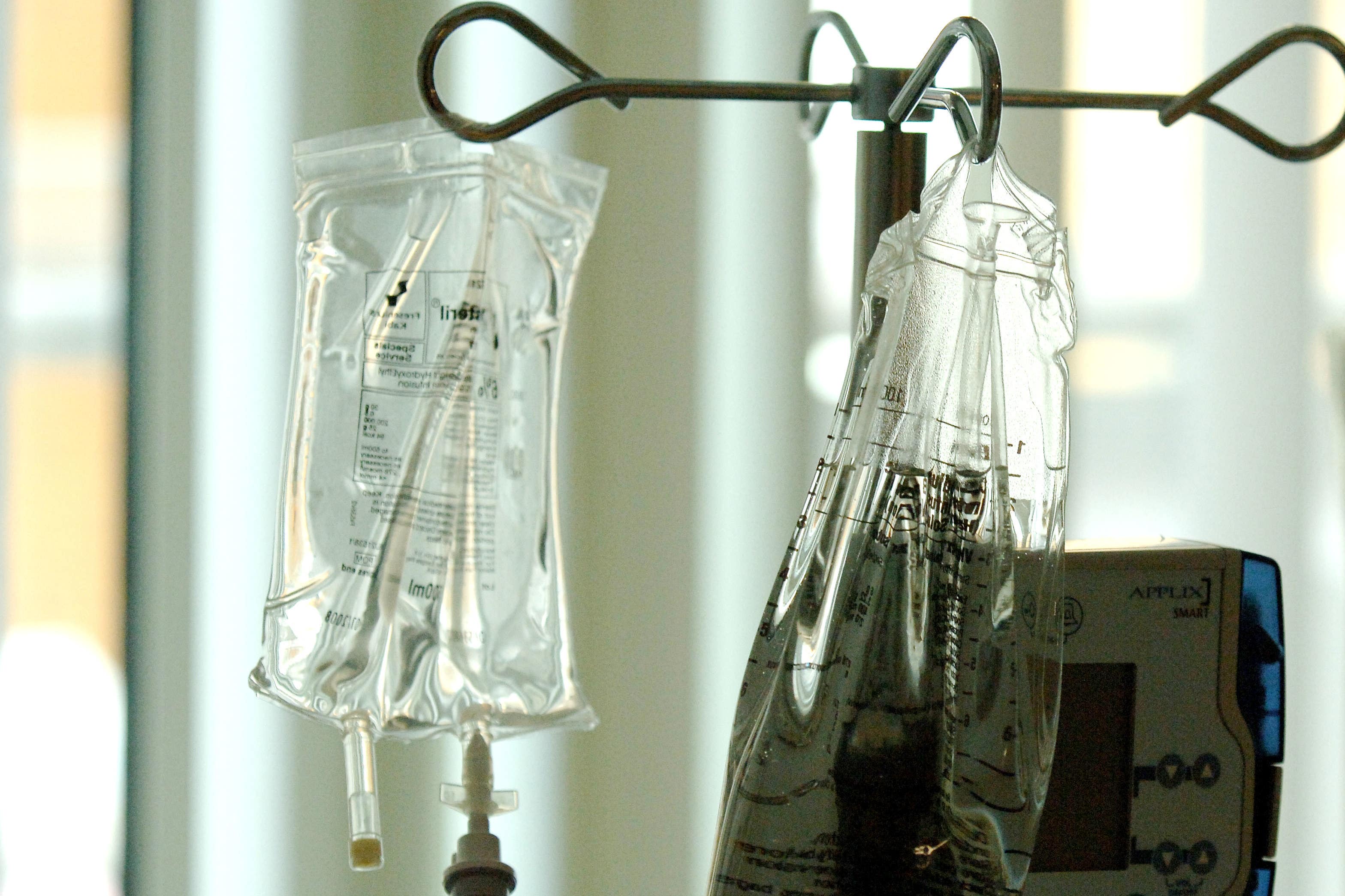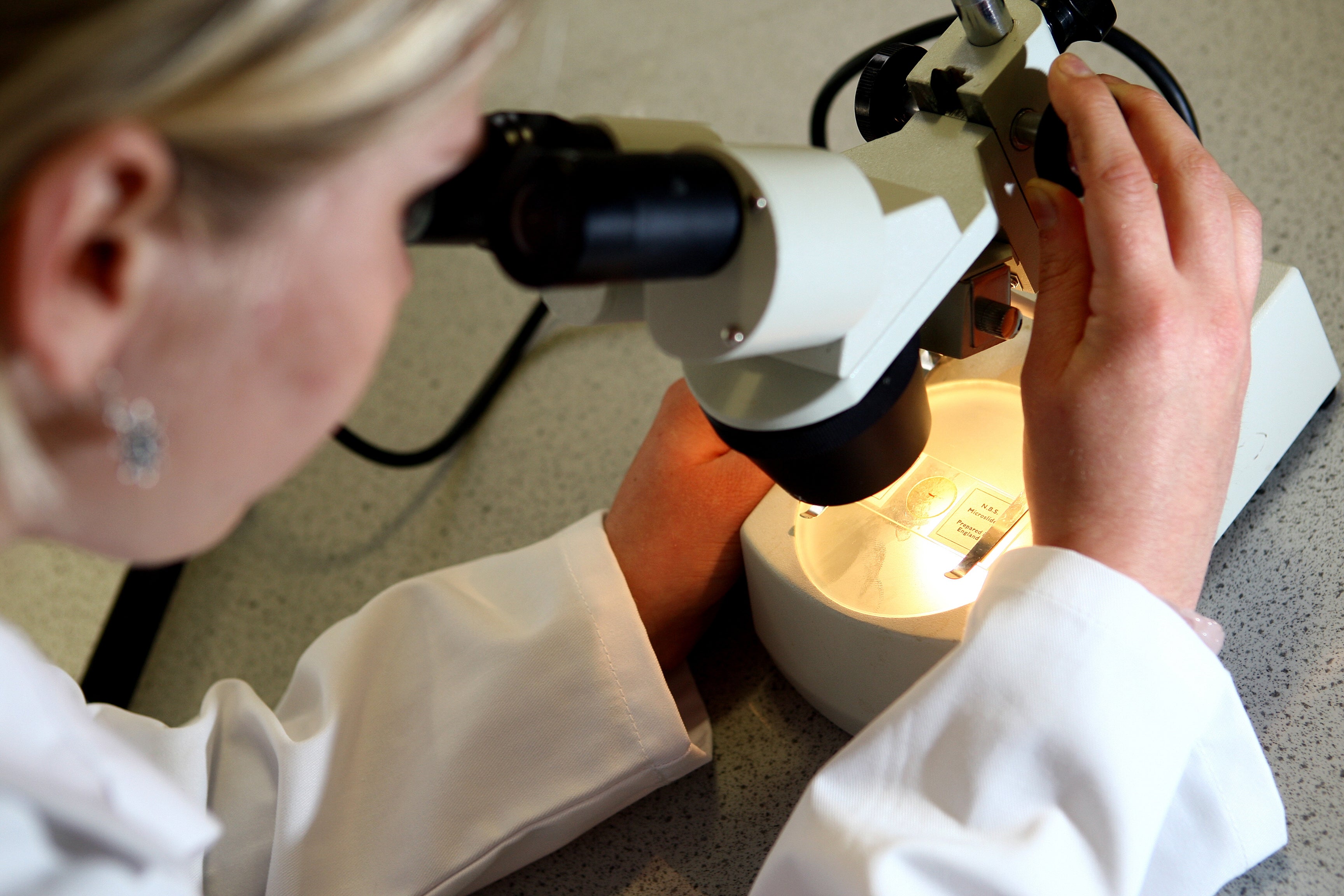Womb cancer breakthrough as new drug gives hope
Jemperli is administered using a 30-minute drip in hospital every three weeks alongside chemotherapy

Your support helps us to tell the story
From reproductive rights to climate change to Big Tech, The Independent is on the ground when the story is developing. Whether it's investigating the financials of Elon Musk's pro-Trump PAC or producing our latest documentary, 'The A Word', which shines a light on the American women fighting for reproductive rights, we know how important it is to parse out the facts from the messaging.
At such a critical moment in US history, we need reporters on the ground. Your donation allows us to keep sending journalists to speak to both sides of the story.
The Independent is trusted by Americans across the entire political spectrum. And unlike many other quality news outlets, we choose not to lock Americans out of our reporting and analysis with paywalls. We believe quality journalism should be available to everyone, paid for by those who can afford it.
Your support makes all the difference.A drug that could buy women with womb cancer more time with their loved ones before the disease progresses is to be made available on the NHS.
Dostarlimab, which is sold under the brand name Jemperli, is an immunotherapy that works by attracting specific proteins on the surface of cancer cells to help the immune system attack them.
The move is expected to benefit hundreds of patients each year and evidence suggests the drug extends life expectancy when used alongside chemotherapy.
It will be rolled out by NHS England from Tuesday after receiving the green light from the National Institute for Health and Care Excellence (Nice), with up to 200 patients expected to be eligible each year.
Professor Peter Clark, NHS England’s Cancer Drugs Fund (CDF) lead, said: “The rollout of this drug as a first-line treatment on the NHS is great news for patients living with this type of womb cancer – this new immunotherapy could offer hundreds of women the hope of precious extra time to live well before their cancer progresses.”
According to Nice, there are two main types of womb cancer – endometrial cancer and uterine sarcoma – with about 9,000 new cases every year in the UK.
The most common type is endometrial cancer, with about 23% of cases involving cells with a high number of mutations.
Jemperli is recommended for these subtypes where the cancer is advanced or has come back following previous treatment, Nice said.
Some 64% of patients using Jemperli and chemotherapy in clinical trials did not see their cancer progress after 12 months of treatment. The figure was more than twice the rate seen with chemotherapy alone (24%).

However, Nice said as data was only collected over a short period of time, long-term benefits of the drug are uncertain.
It will therefore be available on the NHS through the CDF while further studies are conducted.
Helen Knight, director of medicines evaluation at Nice, said: “Advanced or recurrent womb cancer has a devastating effect on quality of life and there are limited treatment options available.
“We are focused on delivering what matters most and getting care to those who need it fast, so I am delighted this treatment option will be made quickly available through the CDF, enabling people with this type of cancer to enjoy more precious time with their families and loved ones.”
Jemperli is administered using a 30-minute drip in hospital every three weeks alongside chemotherapy for six cycles.
Patients with cancers that have responded to the drug can have it every six weeks for up to three years.
One patient said the therapy has allowed her to live “without the brutal side effects” of cancer treatment.
Sue Woodburn, 65, from Kirkby Lonsdale, has recurring womb cancer. She added: “It’s hard to stay positive when you’re running out of options and living with cancer is taking its toll on your mental health.
“Dostarlimab has made a big difference for me. It has helped me to stay positive and hopeful that I will have a decent quality of life for a good few years yet.
“Dostarlimab allows me to have a treatment without the brutal side effects. It’s a treatment that doesn’t take over my life, that enables me to plan for the future.
“And it gives me belief that I might see my granddaughter start school. Now I’ve finished the chemo, I feel nearly back to normal. I’ve been able to travel – and have just come back from Rome. I am back biking, playing tennis and skiing – when I actually thought I would be dead by now.”
Subscribe to Independent Premium to bookmark this article
Want to bookmark your favourite articles and stories to read or reference later? Start your Independent Premium subscription today.
Join our commenting forum
Join thought-provoking conversations, follow other Independent readers and see their replies
Comments